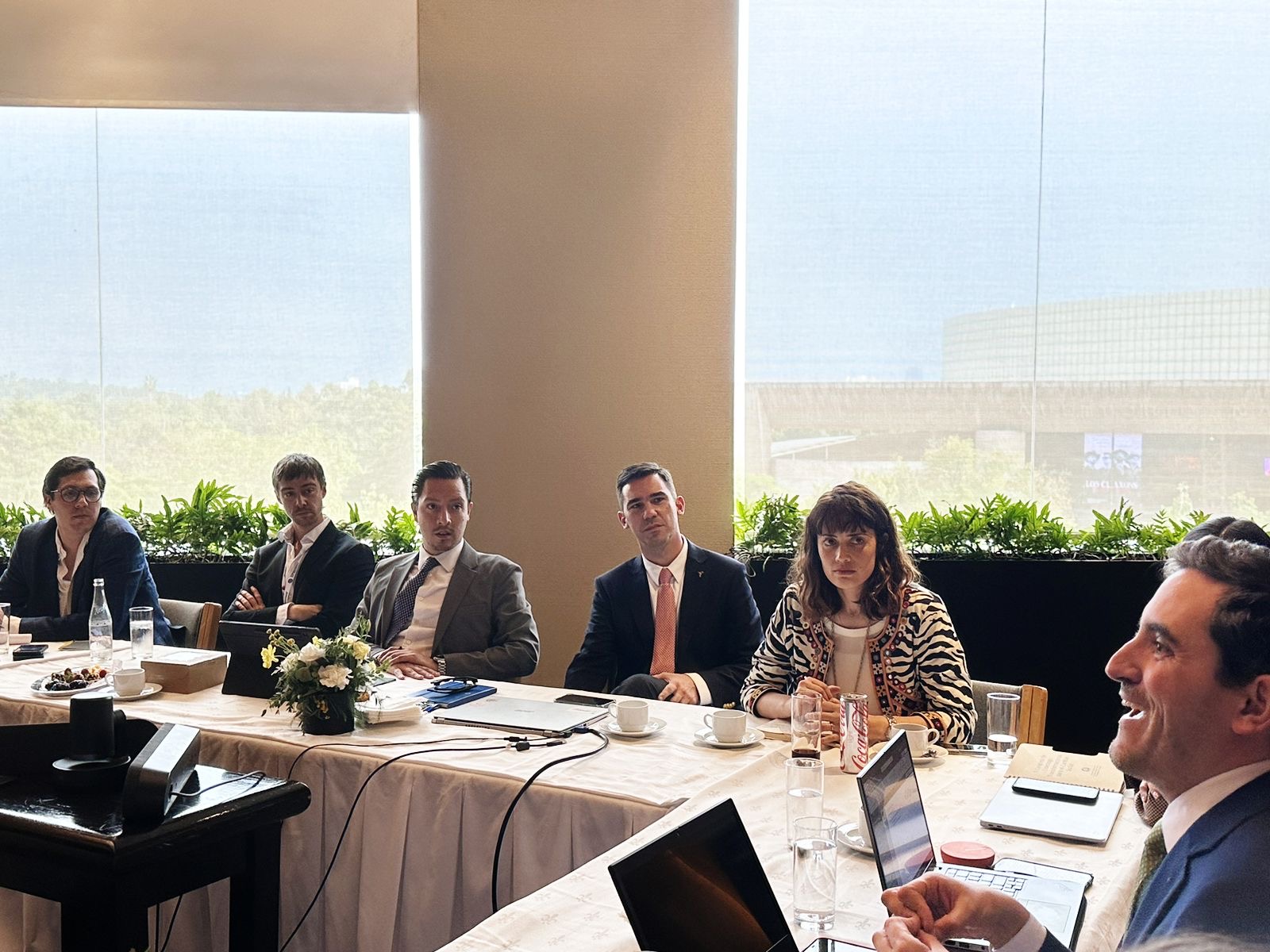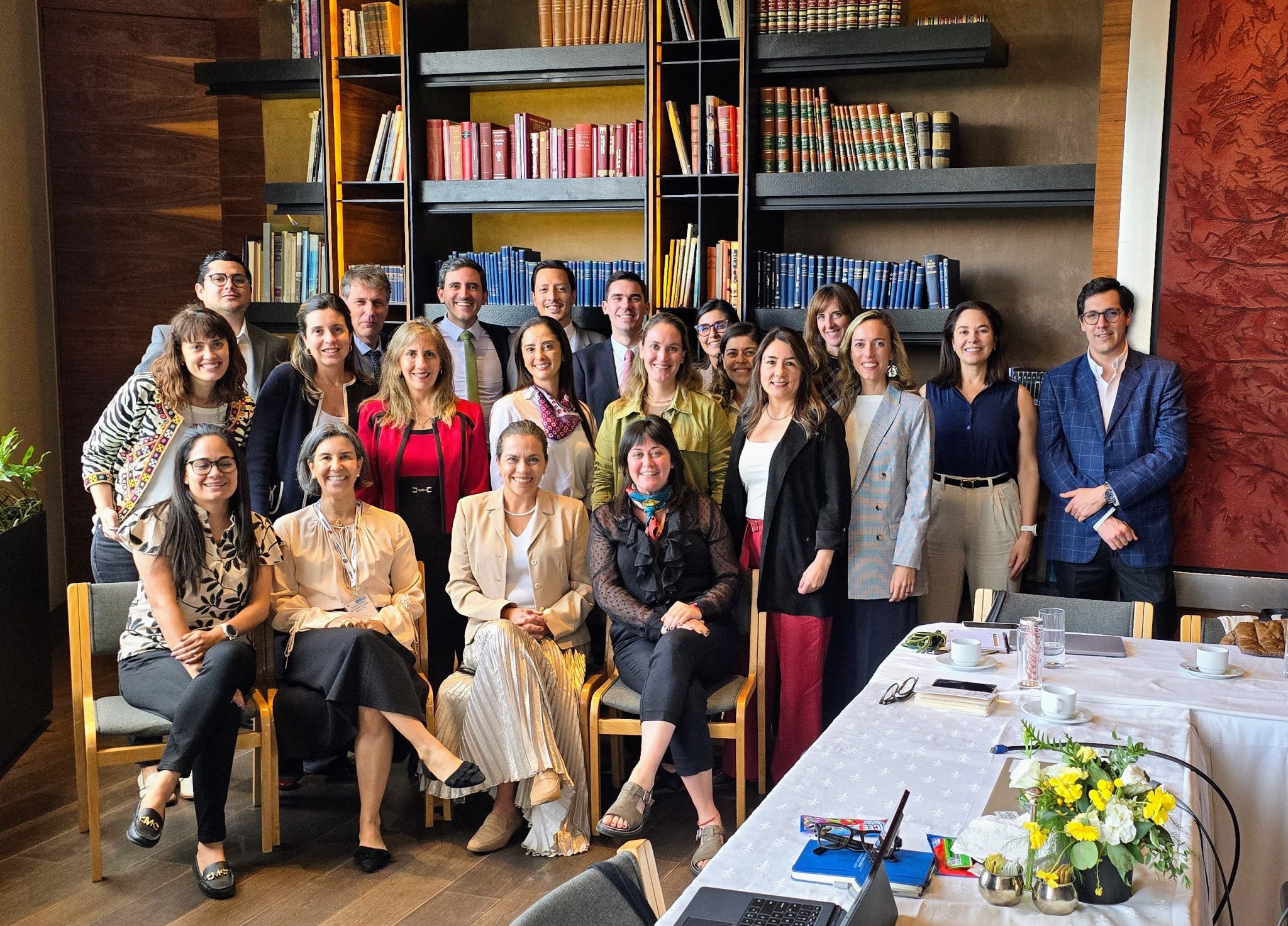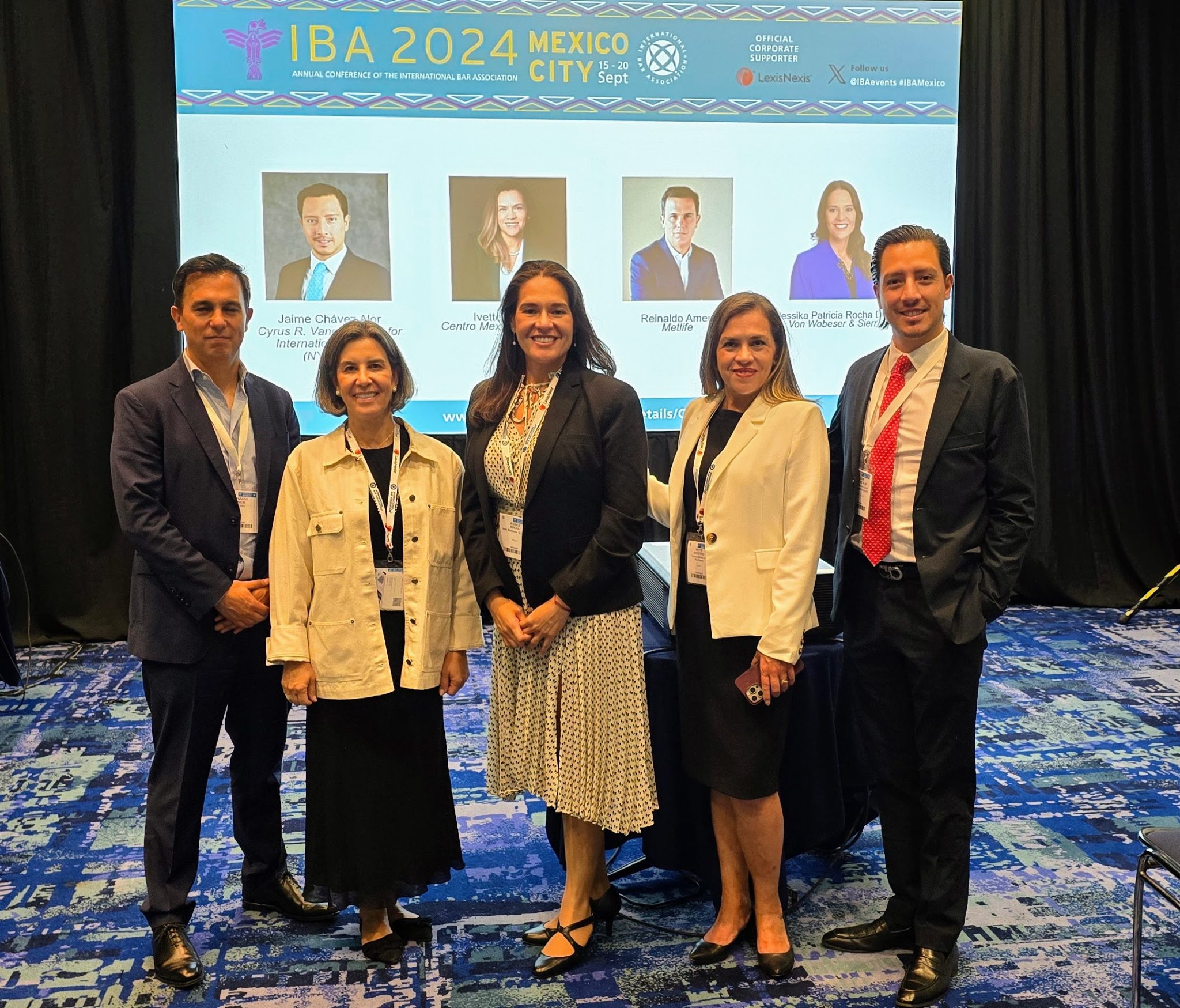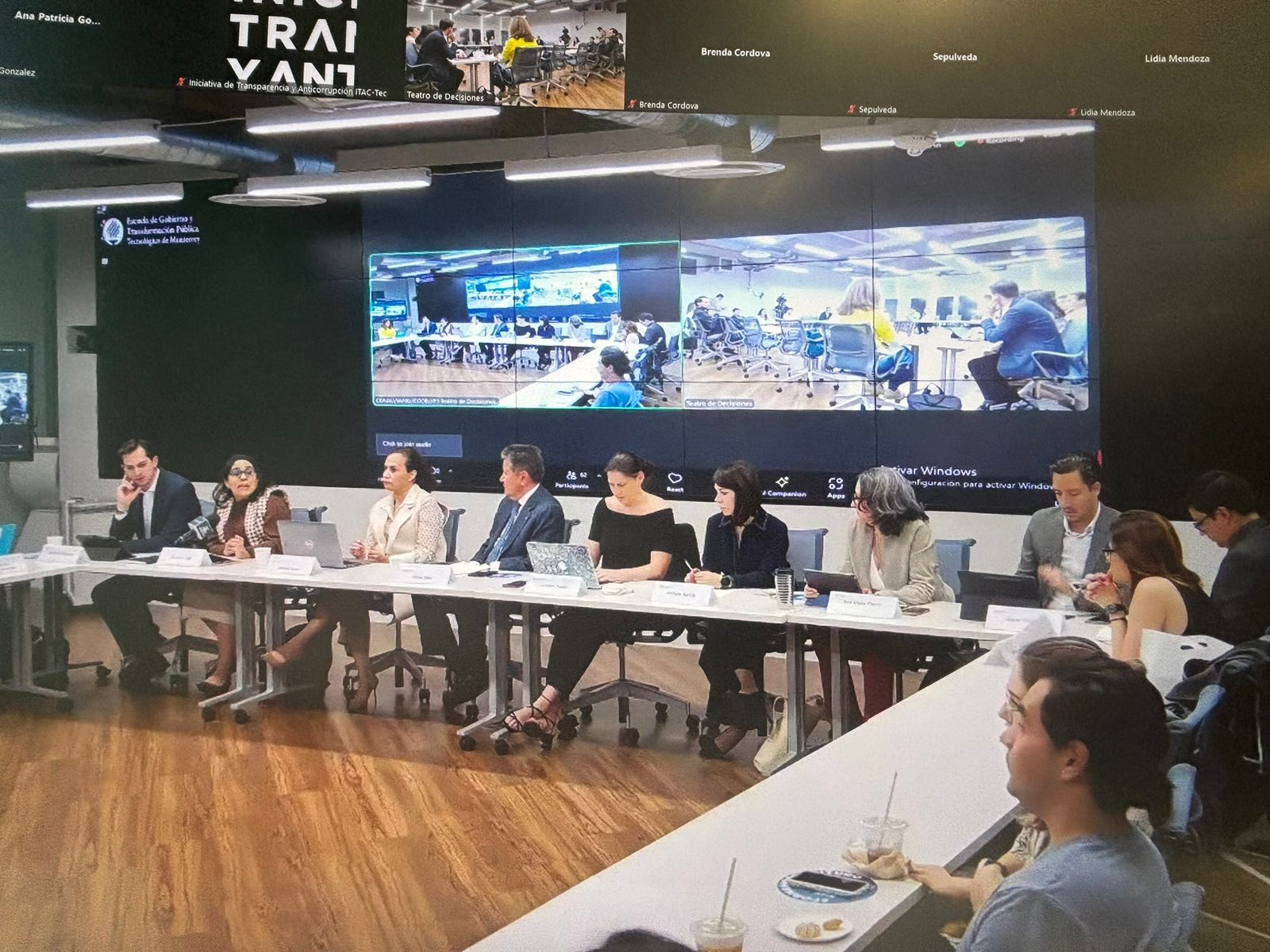This website uses cookies so that we can provide you with the best user experience possible. Cookie information is stored in your browser and performs functions such as recognising you when you return to our website and helping our team to understand which sections of the website you find most interesting and useful.
Vance Center Joins Legal Community for a Busy Week at IBA 2024 in Mexico
September 2024The Vance Center wrapped up an eventful week in Mexico City alongside the International Bar Association’s Annual Conference, connecting with legal professionals from across the Americas to address judicial reform, anti-corruption efforts, and pro bono work in the region.

Representatives of clearinghouses and members of the Pro Bono Network of the Americas during the Network’s annual meeting in Mexico City, September 2024. Photo credit: Vance Center
Kickoff Meeting: Plans for Upcoming Assessments
The Vance Center’s Lawyers Council for Economic and Civil Rights began the week’s activities with a breakfast hosted by law firm Creel, García-Cuellar, Aiza & Enriquez to discuss topics including regional efforts to support judicial independence and the biennial Latin America Anti-Corruption Assessment, which will be published in late 2024. The recent judicial reforms in Mexico provided the foundation for a broader conversation on their far-reaching consequences – not only for access to justice but also for investment and economic stability across Latin America.
An important forewarning developed from the conversation: judicial independence is not just a national issue but also a regional one. The Lawyers Council presented plans to create a quantitative assessment to track judicial independence across Latin American jurisdictions. Members acknowledged the need to do more to support places where civic space is shrinking, and expressed hope that creating a practical, data-driven tool to measure and assess judicial independence could help local legal communities strengthen transparency of legal systems and better address legal reforms.
Advancing Regional Pro Bono Efforts
The Pro Bono Network of the Americas’ annual meeting followed, hosted in partnership with Galicia Abogados and Baker McKenzie. Legal professionals representing clearinghouses in 11 countries in the Network came together to reflect on the evolving scope of pro bono work, common challenges, and shared priorities across the region.
The meeting produced a clear call for deeper collaboration – Network members pointed to the need to better define partnerships between law firms and companies in order to maximize the impact of their pro bono efforts. Participants also highlighted the importance of metrics in measuring success, ensuring that pro bono work is not just done, but done well.


Attendees at the Sept. 17-18 Pro Bono Network of the Americas’ annual meeting.
AI and Pro Bono: A New Era for Legal Services?
This week, we also looked ahead at pathways for the future of pro bono work, co-hosting an event on the potential for AI to revolutionize legal work, alongside Estándares Pro Bono México and the Pro Bono Network of the Americas. Speakers Todd Crider, Juan Pablo Cervantes from Galicia Abogados, and Rosario Lombera from Baker McKenzie highlighted the importance of pro bono during the conversation, which went beyond examining technological capabilities to showcase the real impacts of transforming service provision.
Adrian Palma, Global Pro Bono Manager & Digital Strategist at Microsoft, presented AI tools which are being developed and emphasized that they would automate time-consuming processes, allowing US-based pro bono lawyers supporting DACA recipients to work up to 10 times faster. These tools, like Microsoft’s Copilot, which promise to boost the efficiency of pro bono services and enable legal teams to help more clients faster, could be monumental for assisting underserved communities in gaining more consistent access to justice systems.
Event participants explored how AI tools can scale pro bono services in terms of the quantity of cases lawyers can take on, but also in how they could enable them to handle cases with greater precision. The conversations highlighted how this shift towards automation could cut through time-consuming tasks, potentially freeing up lawyers to focus more on the impact of their work and expertise.
IBA: A Vision to Diffuse Pro Bono
On September 19, Vance Center Associate Executive Director Jaime Chávez Alor joined speakers from a national clearinghouse, a law firm, and a private company for an IBA panel discussing the future of pro bono practice in Latin America. Von Wobeser y Sierra partner Jessika Rocha raised the question of how to embed into law firms and companies, and especially ensuring that small, specialized firms are also taking on more pro bono work. Ivette Montero, founder and director of Mexican clearinghouse Centro Mexicano Pro Bono, discussed the growth of pro bono culture in firms and companies in Mexico. She noted the great domestic need for these services but underscored the importance of balancing that need with finding cases.
Reinaldo Ameri, Vice President and Head of Legal Counsel at MetLife Mexico, highlighted the company’s push to include pro bono clauses in contracts with law firms, in an example of how companies can drive this cultural shift. He suggested that making pro bono work an integral part of business relationships will encourage firms of all sizes to contribute their expertise where it’s needed most.
The sentiment was clear: pro bono practice is growing, but it needs to become a widely integrated part of the legal ecosystem. Panelists emphasized the potential for creating a multiplier effect, where the culture of giving back spreads rapidly across Latin America.

From left, Reinaldo Ameri, Flavia Regina de Souza Oliviera, Jessika Rocha, Ivette Montero and Jaime Chávez Alor at the panel discussion, “Trending topics in pro bono projects in Latin America.”
IBA: Judicial Reform in Mexico: A Ripple Effect with Regional Implications
During a final side event, the Vance Center joined other experts for a series of round-table discussions examining the consequences of Mexico’s recently passed judicial reforms and what comes next for groups including judges, states, civil society, and the international community. The event, hosted by the Instituto Tecnológico y de Estudios Superiores de Monterrey, included speakers from the Mexican Bar Association, Fundacion para la Justicia, Inter-American Dialogue, the Rule of Law Impact Lab at Stanford University, and several Mexican federal judges.
Chávez Alor spoke about the reforms’ international implications such as cases that may come before the Inter-American human rights system in the future. He emphasized how the Mexican case serves as an example for other Latin American countries, underscoring broader concerns about judicial independence backsliding and instability resulting from a lack of legal certainty. Without strong safeguards, he warned, these reforms could undermine the rule of law and negatively affect foreign investment, setting a troubling precedent for the region.

Attendees at the Sept. 19 discussion on judicial independence.
The Vance Center is grateful for the opportunity to engage in events covering a wide range of critical and timely issues, and for the dedication of our partners, both longstanding and new ones, to addressing the complex legal issues facing Latin America and beyond. Thank you to all who hosted, participated in, and attended these events, with special thanks to Creel, García-Cuellar, Aiza & Enriquez, Galicia Abogados, Baker McKenzie, and members of the Pro Bono Network of the Americas and Estándares Pro Bono México.


